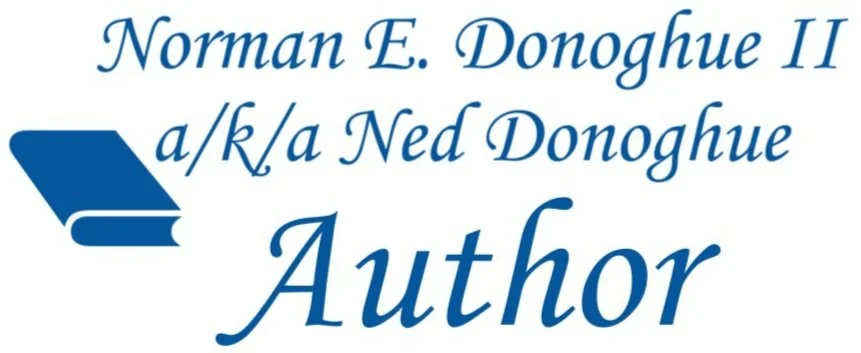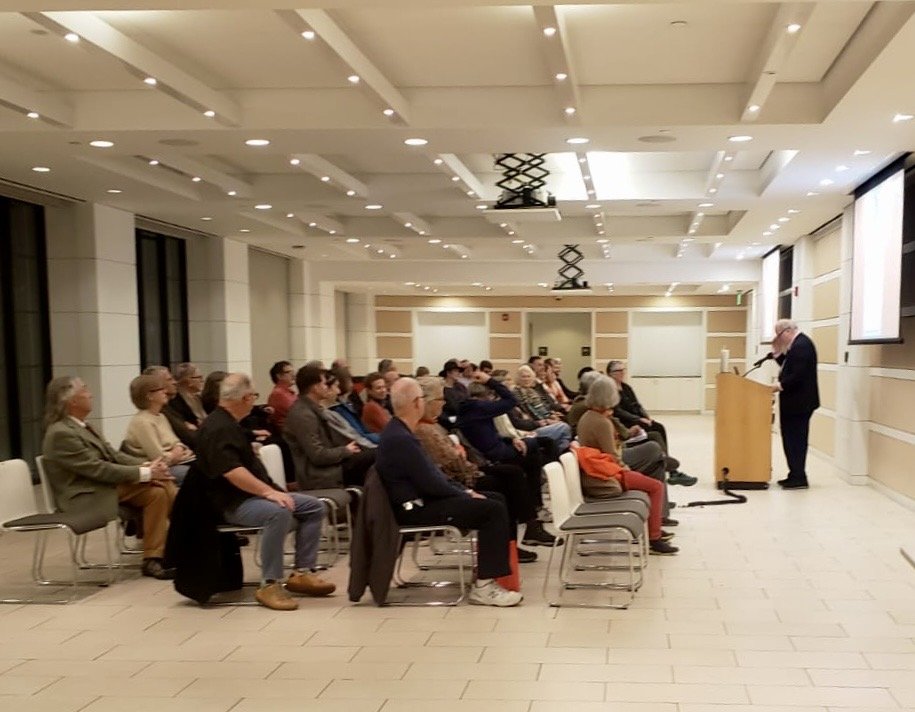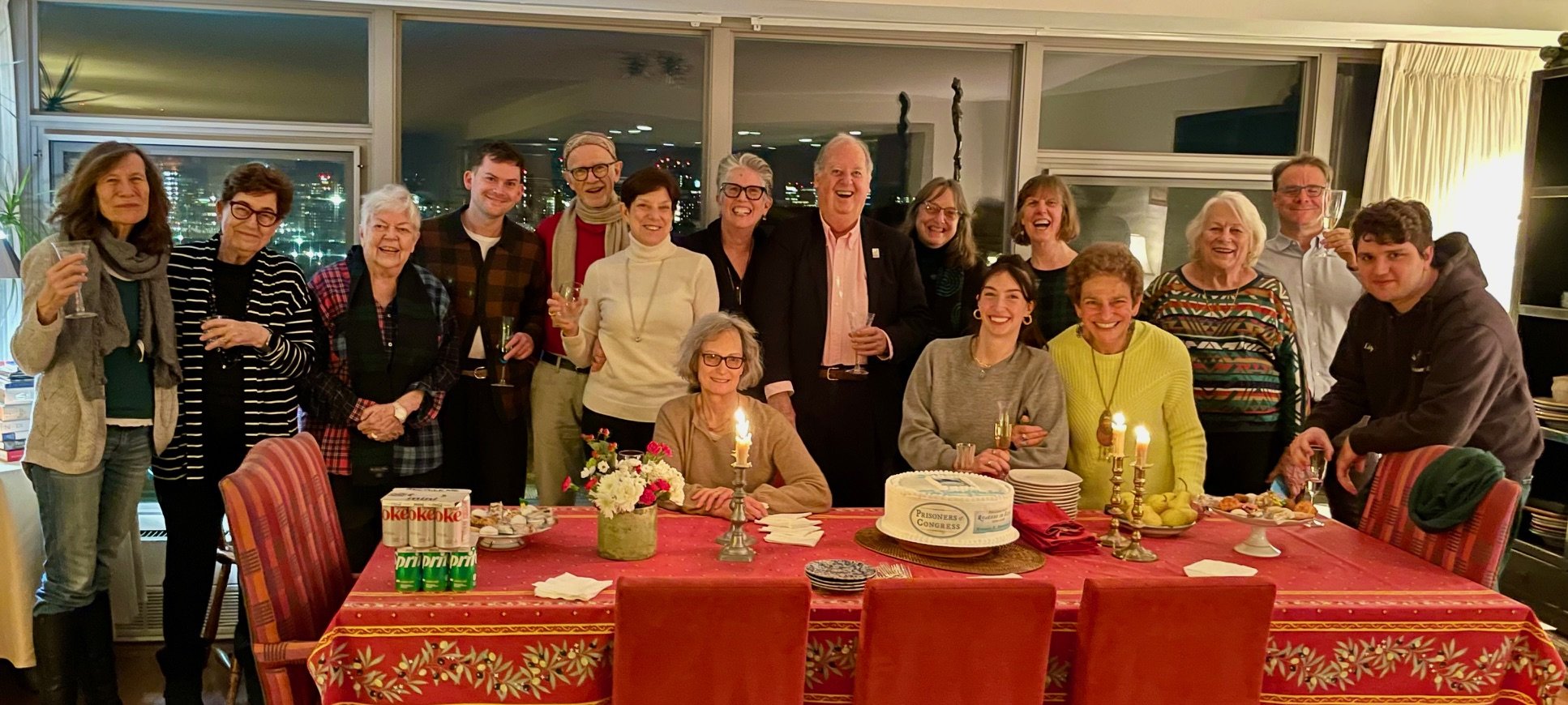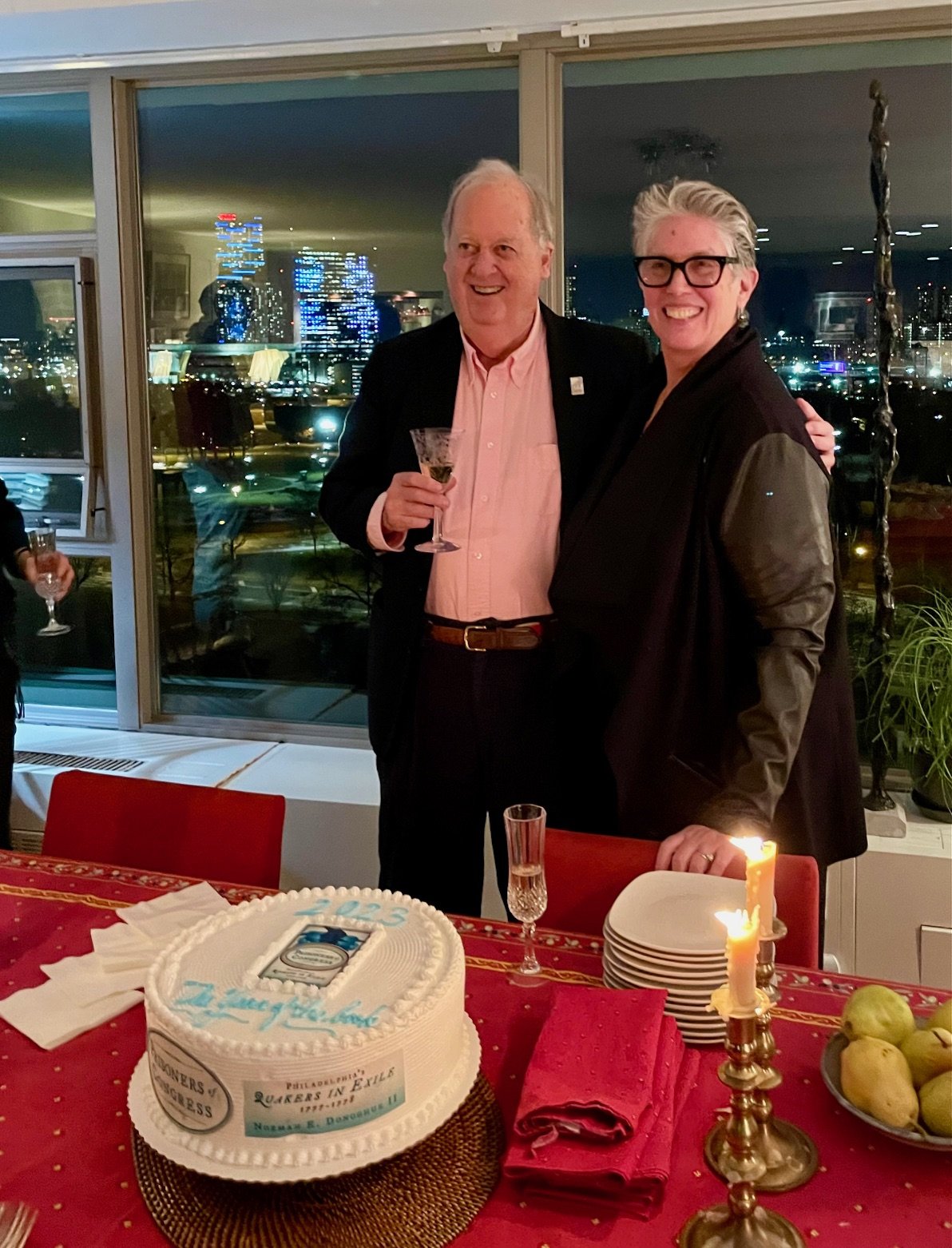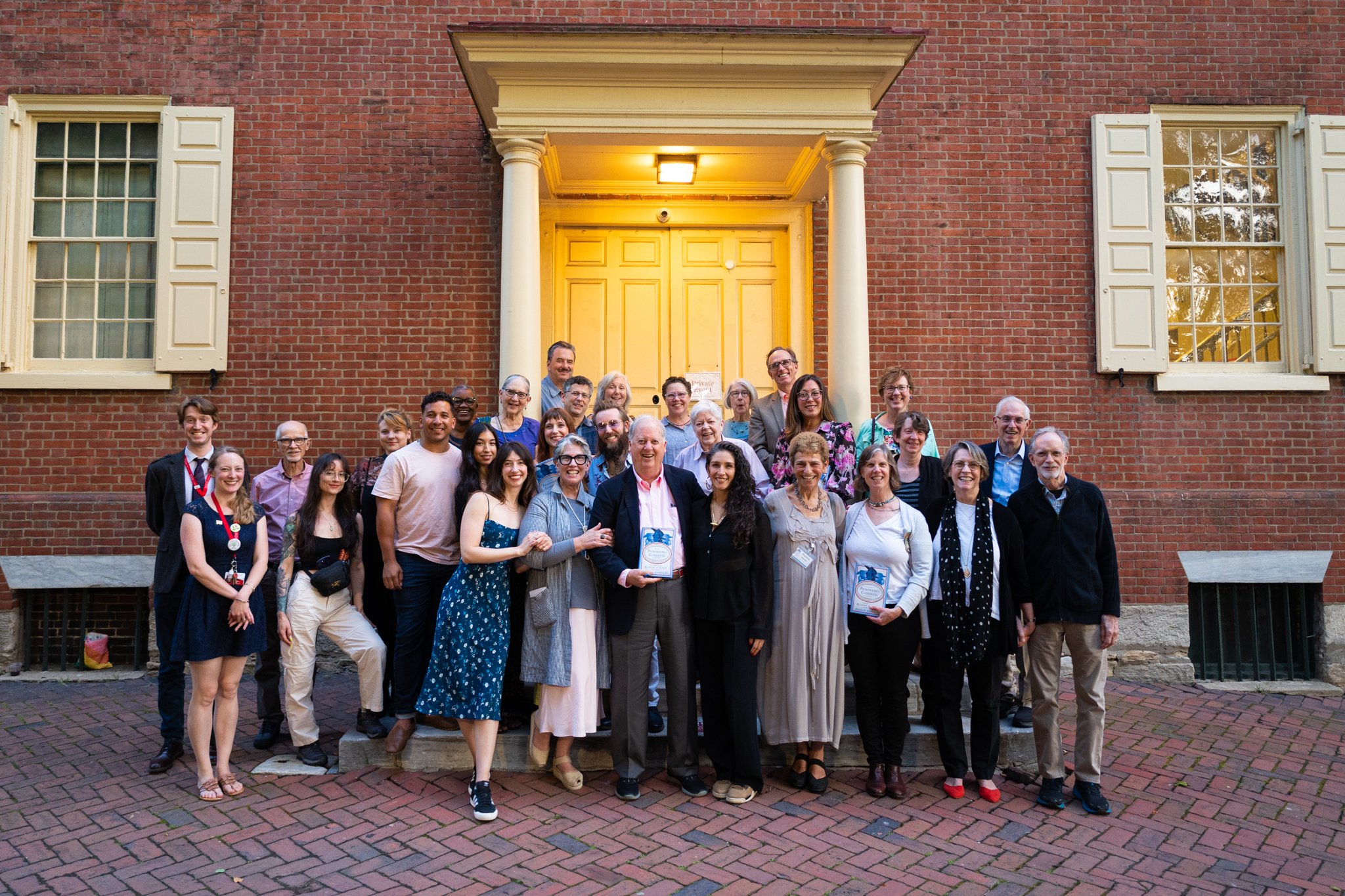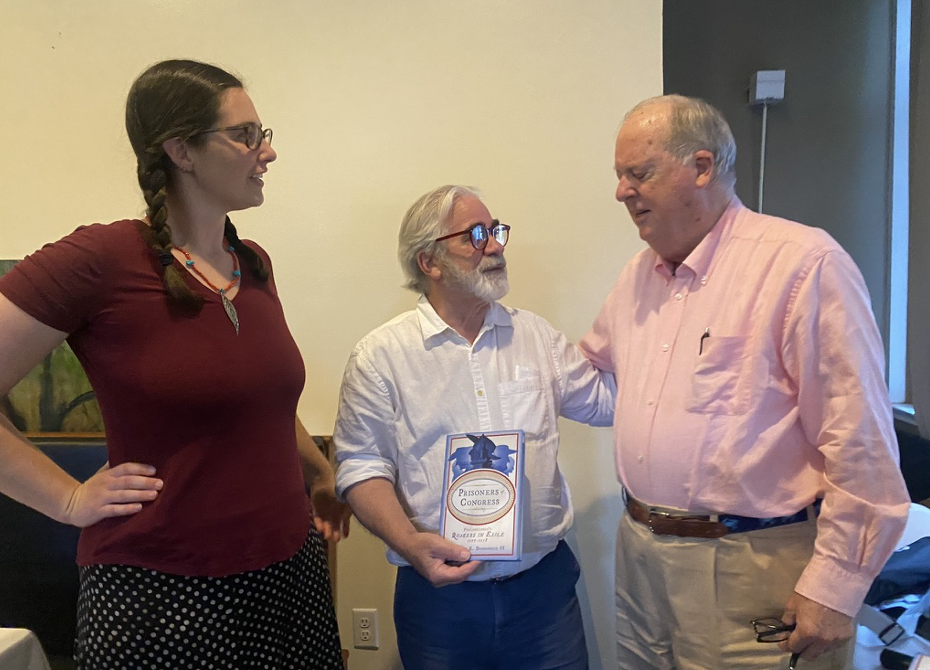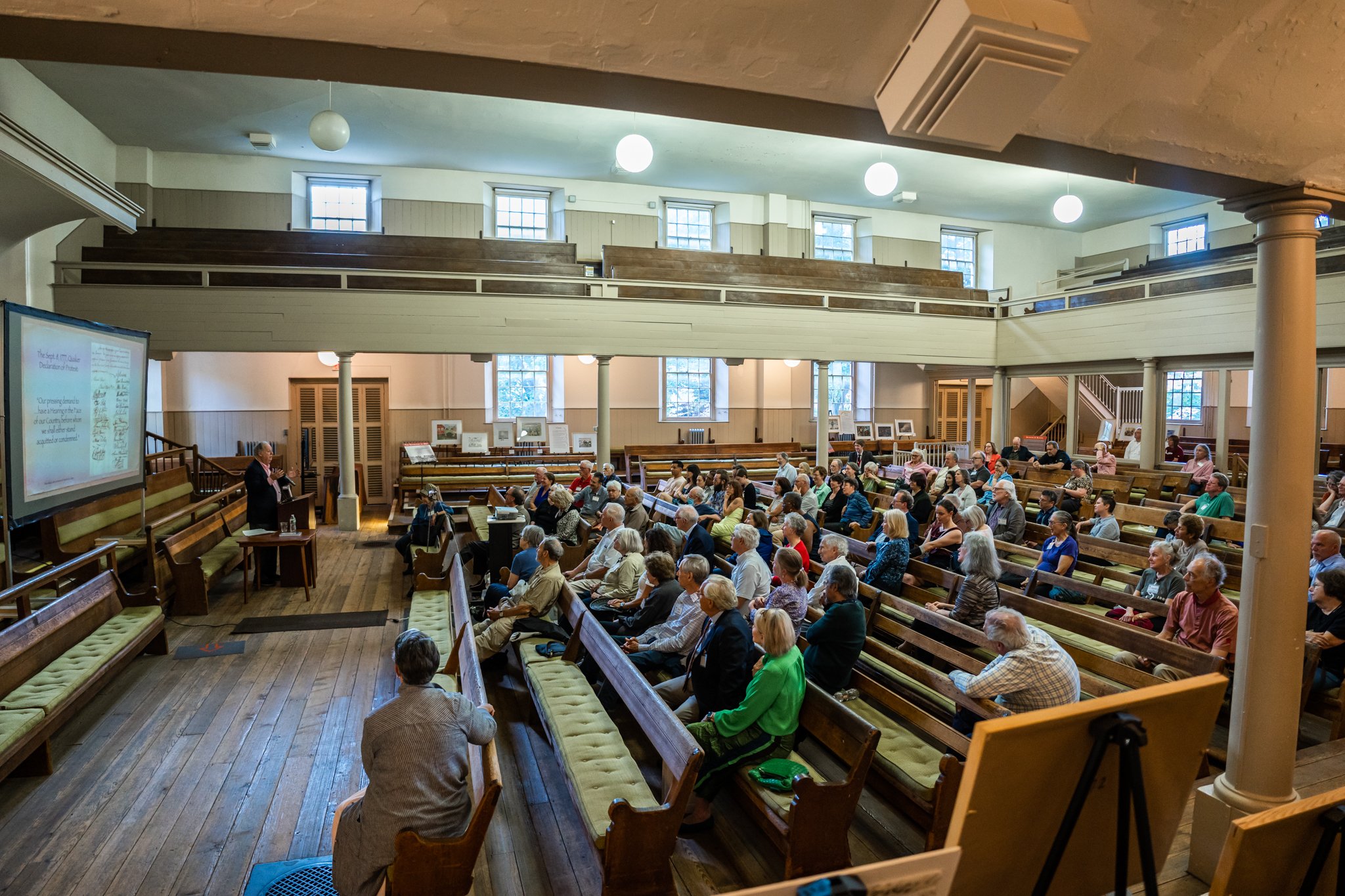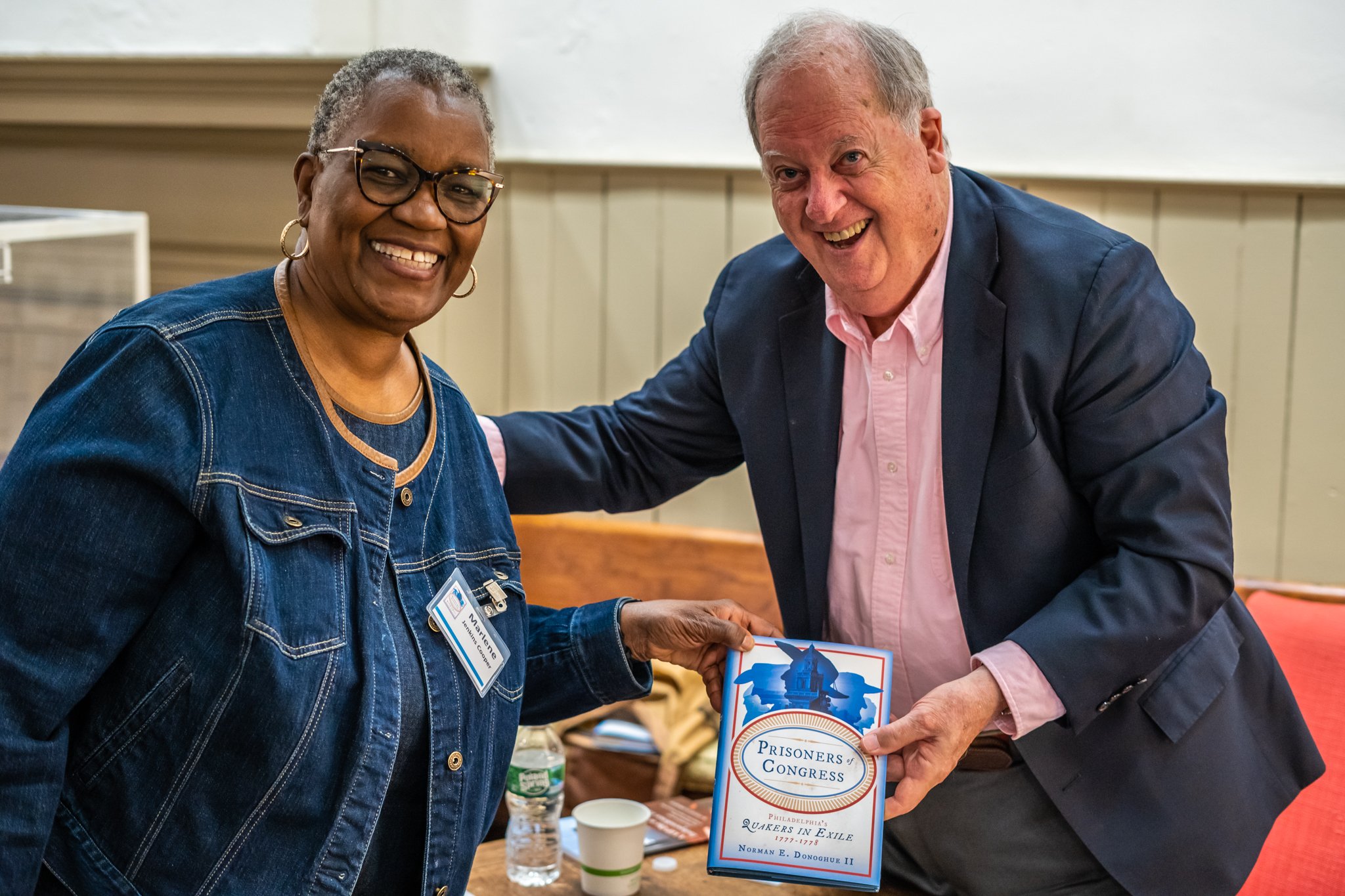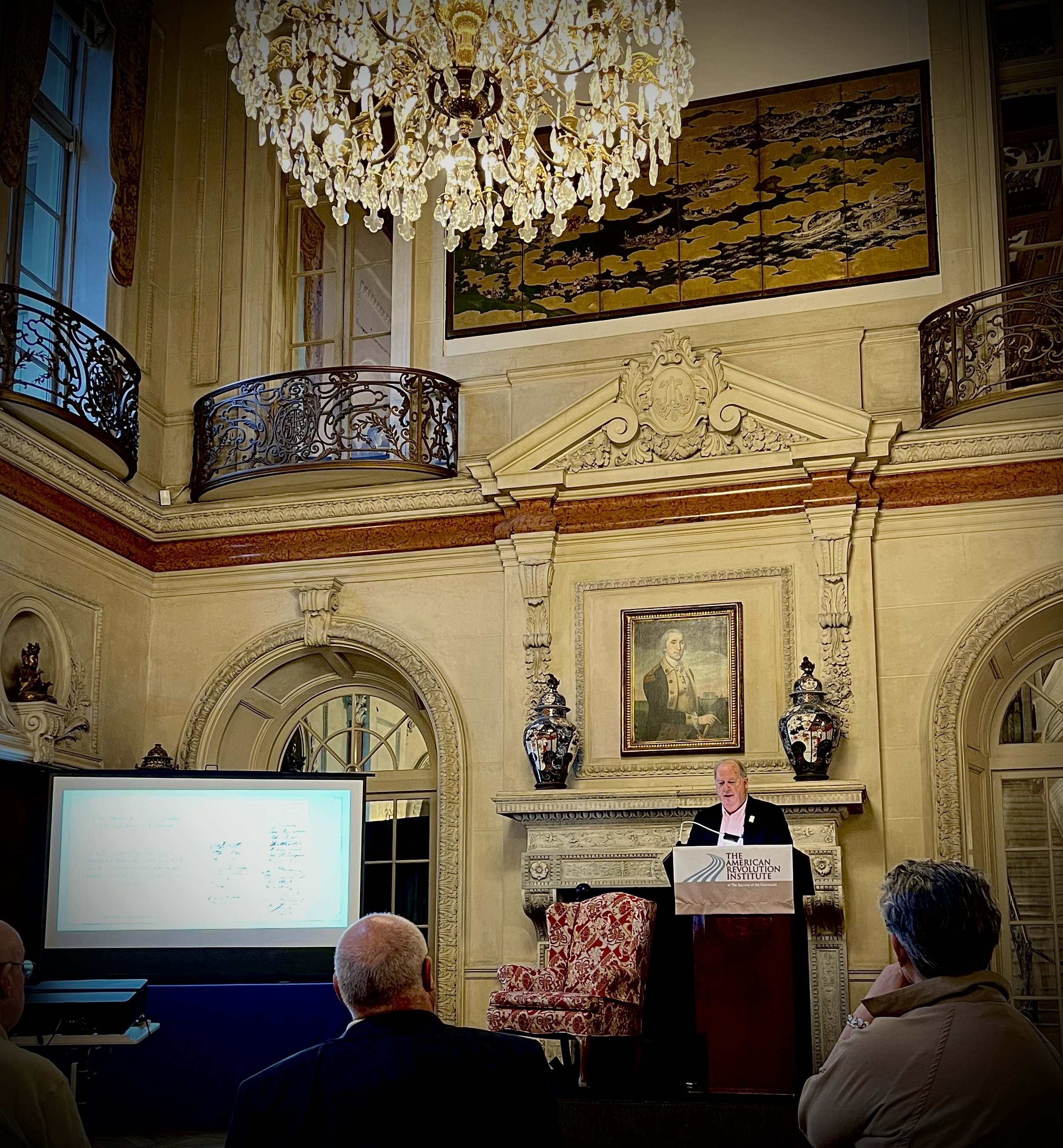For over 245 years, historians have ignored the incidents that pitted the Patriots against the leaders of the Philadelphia Yearly Meeting of the Religious Society of Friends (Quakers). Some publicly accused the Quaker leaders of being traitors to their country; they maintained they were merely following the principal tenets of their religious faith. The Patriots had no legal grounds to arrest them, but they did anyway. Rectifying this historical oversight is Norman E. “Ned” Donoghue’s new book, Prisoners of Congress: Philadelphia’s Quakers in Exile, 1777-1778, the untold story of the men who became among the nation’s first political prisoners, published by the Pennsylvania State University Press.
The new republic which had declared its independence and the newly created state of Pennsylvania were in their infancy and British General Sir William Howe with over 15,000 troops stood menacingly 40 miles away from capturing the capital city of Philadelphia. Quakers would not sign an oath of allegiance to the new government, nor would they comply with requisitions to protect the city. The British Army represented an existential threat. Would notions of individual liberty or, by contrast, national security prevail as the Continental Congress hotly debated for 9 hours the fate of the 20 men, 19 of them Quakers or ex-Quakers, arrested by Pennsylvania militia on Congress’s recommendation? After Pennsylvania and Congress denied these men a hearing, in an additional authoritarian move, the state further stripped them of the right of habeas corpus, preventing them from appealing to the courts. This was a civil war within an anti-colonial war. And the Quakers were at the epicenter of the American Revolution for ten days in 1777.
Would Continental Congress delegate John Adams, who had defended the British officers accused in the Boston Massacre, recommend the Quaker leaders be sent into exile without even a hearing in their defense? And would the Quaker women, whose men were held on the Virginia frontier for over 7 months, later convince commander-in-chief of the Continental Army General George Washington to aid in the men’s release? Prisoners of Congress is the first full book devoted to this important episode.
PRISONERS OF CONGRESS
Philadelphia’s Quakers in Exile
UPCOMING EVENTS
UPCOMING EVENTS
October 9
Febuary 4
March 19
April 11
Thursday, October 9, 2025, @ 6:00 – 7:30 pm when Norman Donoghue will speak
At Washington County Free Library, 100 Potomac Street, Hagerstown, MD 21740
Come find out why and how a member of the German Baptist Brethren pacifist sect became a “Patriot” of the American Revolution, recognized as such by Daughters of the American Revolution and the Society of Sons of the American Revolution. Dunkers refused to bear arms or to take an oath of allegiance. Their faith pledged to do violence to no man.
For questions, call the Free Library in Hagerstown, 301-739-3250.
Feb. 4, 2026 author’s talk at The Acorn Club Philadelphia
2 pm
.
March 19, 2026
Ned speaking at Arch Street Friends Meeting House on Prisoners of Congress
.
April 11, 2026
Prisoners authors talk — Kennett Heritage Library Apr 11 @ 2 pm.
with Lynn Sinclair
REVIEWS
“Prisoners of Congress: Philadelphia’s Quakers in Exile, 1777-1778, is a great story, well told! I enjoyed your book thoroughly, it expanded my knowledge, and it adds a dimension of complexity to the heroic story of the American Revolution.”
-David R. Brigham, Librarian
President and CEO of the Historical Society of Pennsylvania and editor, Two Hundred Years: The Historical Society of Pennsylvania, 1824-2024.
"Prisoners of Congress is one of the best books I’ve read in ages. If history is traditionally dry, this book is an atmospheric river. The factual telling and interpreting of this little known history is so vivid and character-based that it feels cinematic. This book is so cinematic I would not be surprised to see it on Netflix, sooner rather than later."
—Senator John Hickenlooper (D-CO)
A proud descendant of several generations of Philadelphia Quakers, former 2020 candidate for the Democratic nomination for president, served two terms as governor of Colorado and two as mayor of Denver.
"Norman Donoghue's Prisoners of Congress brings to life one of the most important and compelling events of the American Revolution in Philadelphia. It is an untold story of national significance."
—Patrick Spero
Librarian and Director of the American Philosophical Society and author, Frontier Rebels:The Fight for Independence in the American West, 1765-1776.
"Almost novelistic in its compelling narrative, this study marshals familiar and unfamiliar sources to recover the story of America’s first political prisoners.”
—Scott Paul Gordon
Andrew W. Mellon chair, professor of English, Lehigh University.
“Donoghue has produced a meticulously researched book about an under-researched topic that has enormous present-day relevance. Far from a niche story, Prisoners of Congress uses this crucial episode to reveal important truths about American political and religious institutions before, during and after the Revolution. Readers will encounter familiar people, places, and themes in a startingly new and important light, acquiring key insights into a legal and intellectual legacy that reverberated across time and space.”
—Sarah Crabtree
Author, Holy Nation, The Transatlantic Quaker Ministry in an Age of Revolution (Univ. of Chicago Press, 2015), history faculty San Francisco State University.
“Donoghue's book illustrates how the national debate about individual rights versus national security regarding habeas corpus in wartime began not during the Civil War but during the very founding of our nation. He thoroughly examines both sides of the story of the Prisoners of Congress long before the words "preventative detainment" and "national security" had even entered our lexicon. An excellent read as well as an educational one for a debate that continues to this day.”
—Philip Wasielewski
Templeton Fellow, Foreign Policy Research Institute; 30-year veteran U.S. Marine Corps and CIA; former National Security Council, staff Director of Intelligence and Covert Action programs.
“Norman Donoghue has given us what is likely to be the definitive account of a largely forgotten but significant episode of the American Revolution. Elegantly written and based on exhaustive research, Prisoners of Congress illustrates the tensions between religious liberty and dissent, on one hand, and fears of invasion and subversion, on the other, that have been present from the founding of the American republic.”
—Thomas Hamm
Earlham College
“Prisoners of Congress is a fascinating tale recounting a little-known roundup of Quaker leaders during the Revolution, to tell us in spare, elegant prose, the story of their history in Philadelphia and what made them tick.”
—John Lehman
65th Secretary of the Navy, member of the 9/11 Commission, and author of Oceans Ventured: Winning the Cold War at Sea.
Review By Friends Journal
In Prisoners of Congress, Norman E. Donoghue II brings to light a little-known episode of the American Revolution in which the Commonwealth of Pennsylvania and the Continental Congress upended the lives of 20 Philadelphia men—17 of them Quakers in good standing—based on groundless suspicions and a disregarding of the men’s basic legal rights. In his meticulous history, Donoghue documents how the revolutionary government arrested the men without any charges or hearings, despite their repeated objections and pleadings. The men were then forced to travel under guard to Winchester, Va., and live there—at their own expense—for months while their families struggled with hardships at home. Some of the exiles died before they were allowed to return; two fled. Others found that when they came back to Philadelphia, their lives were damaged ever after by the experience.
Reviewed by Cameron McWhirter
November 1, 2023
The American Philosophical Society’s new, current exhibition in partnership with the Historical Society of Pennsylvania and the Library Company of Philadelphia, entitled “Philadelphia, The Revolutionary City,” features as its sharpest example of the turmoil, the Quaker Exile of 1777-78, the focus of my book, Prisoners of Congress: Philadelphia’s Quakers in Exile, 1777-1778 (Penn State University Press, 2023), the untold story of the men who became among the nation’s first political prisoners.
"This exhibition investigates the lived experiences of Philadelphians during the extraordinary period leading up to, during, and after the Revolutionary War. It showcases historic documents, maps, prints, correspondence, and artifacts relating to the city's diverse inhabitants, presenting dynamic and complex narratives involving the people who lived amidst turmoil and change at the epicenter of American independence.” (See September 11 block in the image below). It also introduces a major new digital archive on the American Revolution.
At the Philadelphia Free Library, 48 in person and 33 on zoom!
Peggy threw a toast and cake party for Ned after the Free Library event.
* As Ned (on L above) retired on June 19 from 40 years’ service as a volunteer officer and board member of the Princess Grace Foundation-USA, he presented a copy of his book to H.S.H. Albert II, Sovereign Prince of Monaco, with this toast: “To the memory of Grace Kelly who played a Quaker wife opposite Gary Cooper as the town marshal in the feature Western film “High Noon” in 1953. Prince Albert was in NYC celebrating the 30th year of Monaco’s membership in the United Nations, and we were at the offices of the General Consul of Monaco on Fifth Avenue. Photo released by the Princely Palace.
Peggy threw a toast and cake party for Ned after the Free Library event. (Peggy and Norman)
The crowd at the front door of Arch Street Friends Historic Meetinghouse in Philadelphia where Ned’s family and friends and many others gathered for the book launch.
Tess Jones, manager, and the owner Tom Martin in The Bookplate Bookstore, a favorite of Ned’s in charming Chestertown, Maryland, on the Eastern Shore of the Chesapeake Bay where Bookplate sponsored Ned’s author’s talk to 40 guests, several of whom were Quaker, in a program called “Authors & Oysters in July 2023.
Over 100 people gathered for the book launch on June 14 in the room which once served as the location of Friends’ “meeting for worship” since the iconic building’s completion in 1804 until some years ago.
Marlen Jenkins Cooper, musician, author and publisher, receives her signed and inscribed book after the author’s talk at Arch Street Meeting.
Ned and his wife Peggy staffed a book marketing table at the July 2023 SHEAR (Society for Historians of the Early American Republic) Conference at the Doubletree by Hilton Hotel in Philadelphia.
At The American Revolution Institute at Anderson House, the headquarters of The Society of the Cincinnati, a Gilded Age mansion on embassy row in Washington, DC, Ned spoke in the ballroom under a magnificent chandelier to 40 in-person attendees and 180 more on zoom.
Kim Burdick (L), executive director of Hale-Byrnes House, well preserved home of an 18th century Quaker farmer, introduced Ned to the audience of 40 people in July 2023.
“I grew up around Quakers and their meetinghouses in Chester County and Philadelphia, Pennsylvania, which has led to a lifelong interest in the contrarian ways Quakers think about things.”
—Norman Donoghue
